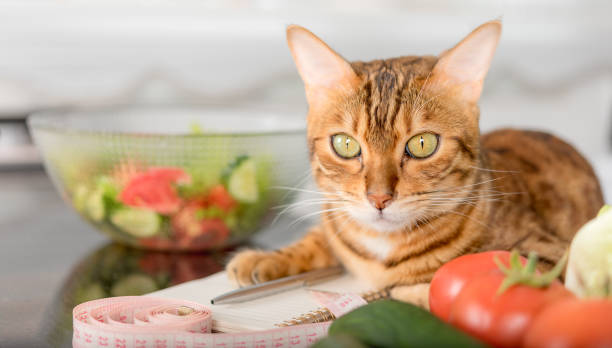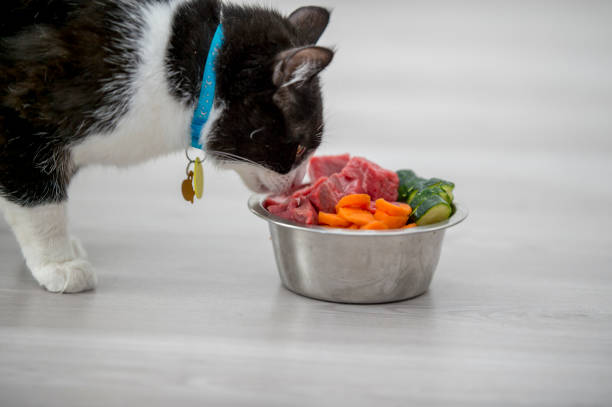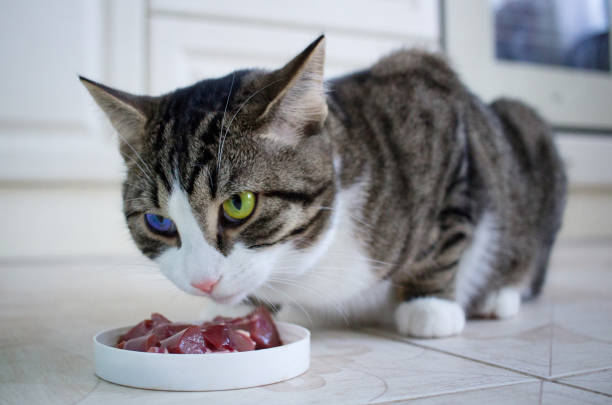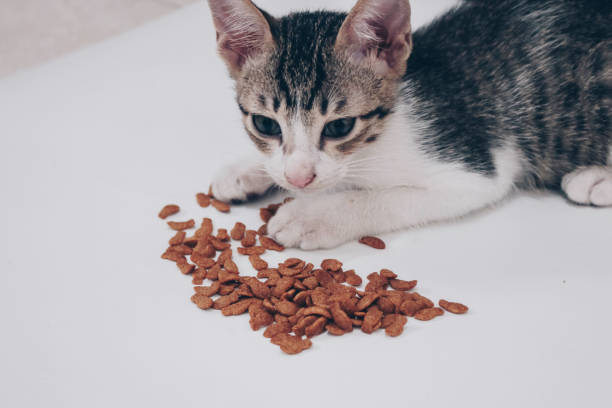Best Hypoallergenic Cat Food For Sensitive Stomachs
Many cats with sensitive stomachs are prone to repeated bouts of vomiting or diarrhea. Some also struggle with itchy skin and coat.
Luckily, the best hypoallergenic cat food for sensitive stomachs can soothe digestive troubles and provide relief from itchy skin or coat. These foods usually feature novel protein sources that reduce the risk of allergic reactions and include specialized fibers and nutrients to improve intestinal health.
1. Limited Ingredient Diets
Unlike standard pet foods, hypoallergenic cat food recipes usually contain limited ingredients in order to minimize your cat’s allergic reactions. They also use novel proteins, like duck or rabbit, and easily digestible carbohydrates, such as sweet potato or peas. Additionally, they typically avoid common allergen triggers like beef, fish, and chicken, which are common causes of food allergies.
Some brands, such as KOHA, make a variety of different sensitive stomach wet cat foods with limited ingredients that support your kitty’s digestive needs. These include pates, shreds, and stews that offer the nutritional benefits of a limited ingredient diet while also providing easy digestion.

These limited ingredients help reduce the amount of unused protein in your cat’s digestive tract, which can be a cause of food intolerances and sensitivities. Additionally, this recipe is free from fish and poultry, and contains prebiotics and probiotics for improved digestive health.
Whether your cat is experiencing digestive issues or just wants to enjoy a simple meal, this recipe is the perfect option. It’s made with a single source of less common animal protein (like rabbit) and a limited number of other wholesome ingredients, such as non-GMO sweet potatoes, non-fermented wheat bran, and beet pulp. It also includes Omega-3 fatty acids and antioxidants, like cranberries and blueberries, to support your cat’s immune system.
2. Hydrolyzed Diets
Some cat foods use hydrolyzed protein, which means the proteins have been broken down into smaller pieces that are less likely to trigger allergic reactions in your pet. These formulas are usually veterinary-formulated or prescription-based and are often used in food elimination trials to identify allergies.
This dry cat food from BLUE features real duck as the primary source of protein and is grain-free, making it good for cats with sensitive stomachs. It also has a lot of fiber for healthy digestion and includes flaxseed and fish meal to boost omega-6 and omega-3 fatty acids and cranberries and blueberries for antioxidant support. It also contains taurine for immune system health.

Another great option for felines with sensitive stomachs, this wet cat food from WholeHearted features a gentle formula that’s easy to digest and has probiotics and prebiotics to promote digestive health. It’s also free of wheat, corn, soy, artificial flavors and colors, and preservatives.
If your kitty has sensitive stomach, it’s important to visit your vet for a diagnosis and treatment plan. Your vet will be able to recommend the right diet for your pet that’ll help improve their digestive health and overall wellbeing. Just remember that it can take some time before you see results, so be patient! You and your kitty will be feeling better in no time.
3. Meat By-Products
If your cat has a sensitive stomach, you’ll want to choose a hypoallergenic food. These diets don’t use common animal proteins known to trigger allergic reactions in cats (like beef, chicken, and dairy). The best hypoallergenic foods for sensitive stomachs will also avoid ingredients like fillers, wheat, and soy. They should have easily digestible protein sources and superfoods for digestive health, immune support, and skin and coat health.
They may contain meat by-products, which are the parts of animals that people don’t eat or typically sell for other reasons (like bones, blood, heads, and feet). While many pet parents are wary of using this type of ingredient, these ingredients can be great sources of nutrients for pets. For example, organ meats like liver and kidneys are rich in vitamins and minerals that can be difficult to get from lean cuts of meat.

Other beneficial elements of these diets are that they’re usually grain-free and contain a minimal number of ingredients to reduce your cat’s chance of having an allergic reaction. They’re also more likely to use natural ingredients compared to standard pet foods. This means the proteins are likely coming from animals your cat would eat in the wild, as opposed to “meat meals” made with a bunch of other ingredients. It’s also important to look for the specific animal, not just a generic “meat” source.
4. Minimal Ingredients
The best hypoallergenic cat food for sensitive stomachs contains a limited number of ingredients to minimize unwanted allergic reactions. These formulas are typically free from common allergen triggers, including poultry, beef, dairy, and grains. They also avoid fillers like wheat and potato, animal by-products, and artificial preservatives and flavors. If they feature any animal proteins, these are often hydrolyzed, which breaks them down into smaller molecules less likely to trigger allergic responses.
Many of the top hypoallergenic foods for sensitive stomachs also include novel protein sources, such as rabbit or venison, that aren’t normally found in conventional pet food. This is because these proteins are less frequently exposed to cats, which means they’re less likely to develop an allergy to them. They also may feature a single carbohydrate source that’s easy for cats to digest, like sweet potato.
These formulas are designed to support your sensitive cat’s gastrointestinal health and can include gut-health-boosting prebiotics, probiotics, and dietary fiber. Many are also fortified with immune-boosting omega fatty acids and other nutrients that help to support a balanced diet.

